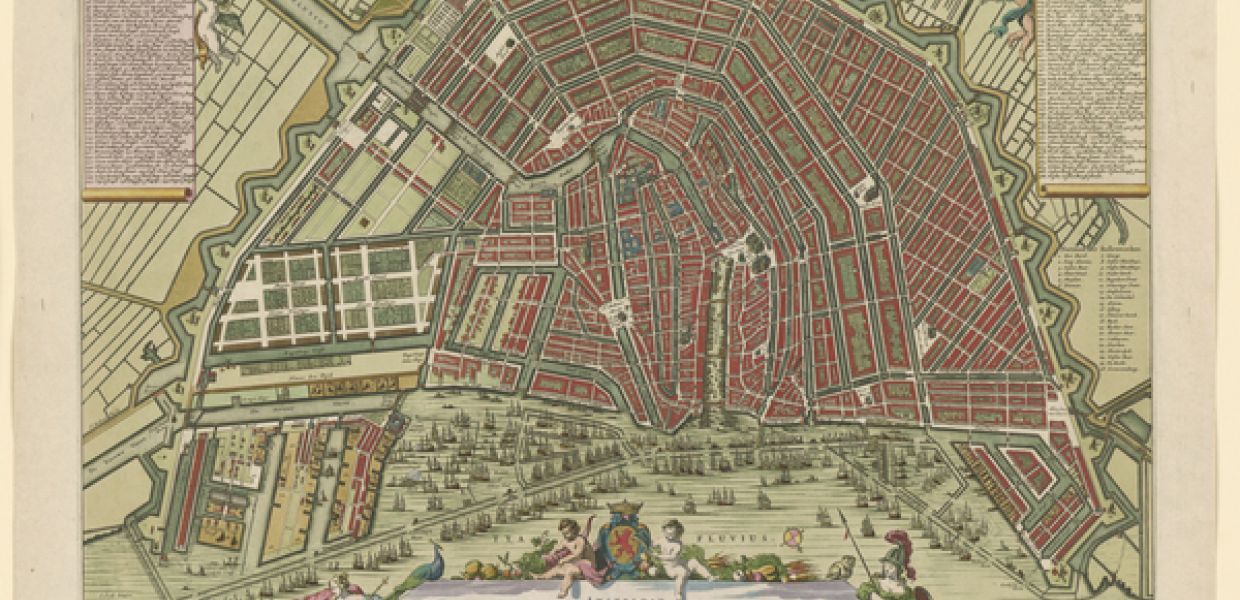Meet the Members Council: Paul Keller

While I’m a fairly regular contributor to this blog, I’m also a bit of an outsider when it comes to the cultural heritage world. This is because Kennisland, the organisation I run, together with my colleague Chris Sigaloff, is not a heritage institution, and work in the cultural heritage sector only makes up one aspect of our work.
Kennisland is a Dutch non-profit think tank that was founded in 1999 in order to promote the concept of the knowledge society in the Netherlands. We are working on social innovation for a smart society and as part of that mission we have been working with cultural heritage institutions on opening up their digital collections. This all started over eight years ago when we became one of the partners in the Images for the Future project, the biggest digitisation project even carried out in The Netherlands (you can find out more about this project, and the lessons learned from Joris Pekel's blog here).

Hand-coloured map of Amsterdam, Rijksmuseum, Public Domain.
From our perspective free and open access to culture and knowledge is an important element of smart and inclusive societies. The internet provides an exciting platform for cultural heritage institutions to contribute to this goal; we see it as our role to help them realise this potential.
Our work in this area is driven by our mission. We believe that cultural heritage collections should be be as open as possible and that it is the role of publicly funded heritage institutions to contribute to and preserve the Public Domain. Based on this mission we have mainly been working on problems related to copyright, business models and new ways of providing access to collections.
I became involved with Europeana in 2009 when Kennisland became a partner in the Europeana Connect project. Together with the Bibliotheque National de Luxembourg and the Institute for Information Law at the University of Amsterdam we had signed up for the task of developing a licensing framework for Europeana (back in those days Europeana operated without formal agreements related to the copyright status of the metadata supplied by the data providers).
As part of this work we authored the Europeana Public Domain Charter (which I still consider my most important contribution to Europeana over the past years). We also developed the Europeana Licensing Framework which provides a clear legal framework for how Europeana deals with both metadata and content.
I have spent a good deal of time implementing the Europeana Licensing Framework by ensuring that all 40 million plus objects in Europeana have a rights label that allows visitors of the site to quickly determine if they can re-use an object or not. As part of this, I have established a close working relationship with the aggregation/ingestion team at Europeana (I even interned with them for a day!).
With the work on the Europeana Licensing Framework firmly established my current focus for Europeana has two strands:
- First of all, I am working with the Europeana Foundation on ensuring that the voice of Europe’s cultural heritage institutions is heard in the discussions about a modernisation of the European Copyright rules. If cultural heritage institutions are expected to bring their collections online, they need copyright rules that help and not hinder them with this. In this role you can find me in Brussels a lot, speaking to members of parliament, commission officials and member state representatives. Ensuring that cultural heritage institutions get what they deserve will be a long process and we are counting on the network to help with this.
- Secondly, we are working on increasing the quality of the content that is available via Europeana. If we want to enable re-use of the content that can be found via Europeana we will need to ensure that the quality of the content that can be found meets the expectations of visitors and developers. As part of this we are currently developing a content re-use framework for Europeana that will provide technical tools to better filter content that is available via Europeana, and provide clearer guidelines for data providers who want to ensure that their content is available for re-use. We plan to present the content reuse framework in July as part of the final conference of the Europeana Creative project in Vienna.
I am looking forward to working with all of you on these important issues.
